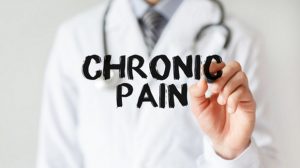Car accidents are traumatic events that can have a profound psychological impact on both drivers and passengers. Beyond the physical injuries and damage to property, the emotional and psychological toll of a car accident cannot be understated.
The immediate psychological impact of car accidents
Car accidents are sudden and unexpected and often leave individuals in a state of shock and disbelief. The rush of adrenaline and the fear of the unknown can trigger intense emotional reactions such as anxiety, fear, and panic. The physical and emotional trauma of the accident, including injuries sustained by the driver, passengers or others, can also leave lasting psychological scars.
Cognitive dissonance and denial are common psychological reactions to a car crash. Those directly involved or witnesses to the accident may have difficulty accepting the reality of the situation and may struggle to come to terms with the aftermath. It can be overwhelming to process the emotions and thoughts associated with the car accident, leading to confusion and distress.
It’s important to acknowledge and address these immediate psychological reactions. Ignoring or suppressing these emotions can have detrimental effects on our mental health in the long run. It’s also important to provide support and understanding to accident victims and encourage them to express and process their emotions in a healthy manner.
Long-term psychological effects of car accidents
The psychological impact of a car accident can extend beyond the immediate aftermath and may have long-term effects on an individual’s mental health. One common condition that may develop after a car accident is Post-Traumatic Stress Disorder (PTSD). PTSD is a psychiatric disorder that can occur after experiencing or witnessing a traumatic event, such as a car accident. Symptoms of PTSD may include intrusive thoughts, flashbacks, nightmares, avoidance of triggers, and changes in mood and behaviour.
In addition to PTSD, car accidents can also lead to other anxiety disorders and phobias. Individuals may develop a fear of driving or being a passenger in a car, which can significantly impact their ability to travel and carry out daily activities. Depression, characterised by persistent feelings of sadness, hopelessness, and loss of interest in previously enjoyed activities, may also develop as a result of psychological trauma.
Substance abuse and addiction can also be coping mechanisms for individuals struggling with the psychological impact of a car crash. Some may turn to drugs or alcohol as a way to numb the pain and distress associated with the accident, leading to further psychological and emotional issues. The impact on personal relationships and daily life should not be underestimated either, as victims may struggle with changes in their social interactions, work performance, and overall quality of life.
Coping mechanisms for dealing with psychological injuries
There are various coping mechanisms that individuals can employ to deal with the psychological impact of a car crash including:
- Mental health support – Seeking professional help from mental health providers, such as psychologists or counsellors, can be instrumental in processing the emotions and thoughts associated with the accident. Therapeutic techniques, such as cognitive-behavioural therapy (CBT), can help individuals develop coping strategies to manage anxiety, depression, and PTSD symptoms.
- Friends and family – Talking to friends and family can also be beneficial in processing psychological injuries from a car accident. Having a support system that is understanding and nonjudgmental can provide comfort and reassurance during this challenging time. Joining support groups, either in person or online, can also be helpful as it allows victims to connect with others who have experienced similar situations and share their stories and coping strategies.
- Stress management – Self-care and stress management are essential coping mechanisms. Engaging in activities that promote relaxation, such as exercise, meditation, and hobbies, can help individuals manage stress and anxiety. Taking care of one’s physical health, getting enough sleep, and eating well can also contribute to overall well-being and resilience.
Coping with triggers and flashbacks is another important aspect of managing psychological injuries. Car crash victims may experience triggers, such as being in a car or hearing loud noises, that can evoke memories and emotions related to the accident. Developing strategies to cope with these triggers, such as deep breathing, grounding techniques, or seeking support from a trusted person, can be helpful in managing these difficult moments.
Summary
As we can see, car accidents can have a significant psychological impact on drivers and passengers alike. The immediate reactions of shock, anxiety, and trauma, as well as the potential long-term effects, can have a profound impact on our mental health. As such. it’s important to recognise and address the symptoms of a psychological injury.
Mental health support should be prioritised in the aftermath of a car crash, and victims should be encouraged to seek help without stigma or shame. By providing adequate support and resources for mental health issues, we can help car accident victims on their journey to recovery and improve their overall well-being.



